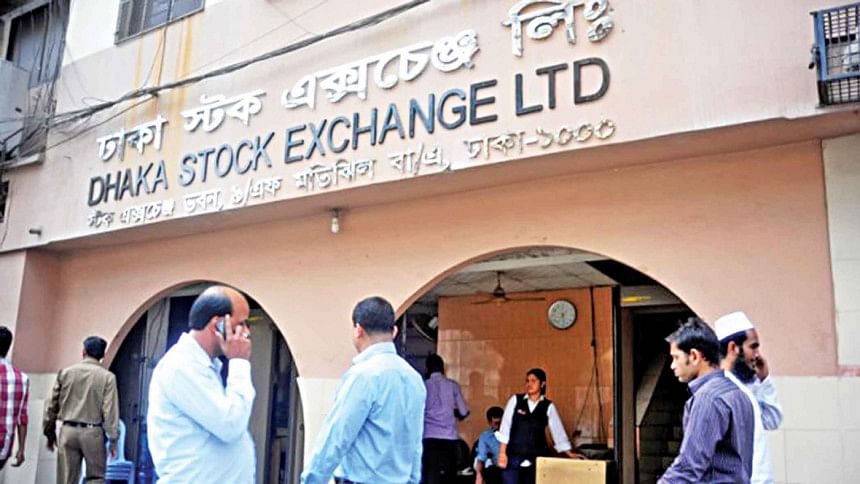Creating a modern and diverse capital market in Bangladesh

In most market economies around the world, companies can typically choose between many financial assets to raise money for growth and capital expenditure. Some will issue corporate bonds. Some will access bank loans. Others might get listed in the stock exchange and raise money by selling shares to the public. If that's not enough, there's private equity (PE) financing.
In Bangladesh, however, firms hardly have such luxury. If a company needs to raise money, they will typically run to the troubled banking sector. As for raising money through the public equity or stock market, companies shy away from going public due to many regulatory shortcomings and inadequate incentive. For example, a report by The Daily Star, shows only 10 companies have been approved to go public between 2011 and January 2019 ("IPOs lose lustre for high cost, lengthy process", January 13, 2019). And to top it off, private equity as well as corporate bond financing is almost negligible in Bangladesh.
Here in lies the need for a modern capital market in Bangladesh: one that combines the benefits of public equity (stock market), private equity and corporate bond financing with traditional bank credit. Since these different sources of capital are complementary to each other, what we need is a three-pronged approach to modernising Bangladesh's capital market: (i) Developing the Private Equity Market; (ii) Strengthening the Stock Market; and (iii) Deepening the Bond Market.

DEVELOPING THE PRIVATE EQUITY MARKET
So what is a Private Equity firm? These are investment firms that raise money from institutional investors such as hedge funds, mutual funds, wealthy individuals, university endowments, pension funds, retirement funds, etc., and use this money to acquire companies. Their goal is to improve the value of the company before selling it at an appropriate price. But PE is not just a source of capital. It is a source of knowledge. PE fund managers provide valuable expertise on how to grow a business, make it more efficient and profitable.
Investments, or more specifically acquisitions, can be made in startups, small/mid-sized companies that need additional capital to purchase new machinery, office space or any other asset that will help such companies grow. Investments in startups are typically known as venture capital investments. We were all delighted to see renowned venture capital firm Sequoia recently investing in Bangladesh. Such a revolutionary investment surely promises to draw more attention from other global PE firms and hopefully become a standard source of capital for startups that cannot access bank financing due to lack of collateral.
Venture capital investments are minority-owned acquisitions. So while companies can receive valuable knowledge on efficient business strategies from these PE firms through sporadic interactions, they still do not receive the hands-on day-to-day managerial expertise that could be availed if PE firms took majority-control of these companies.
This is where buyouts come in. Or more specifically, leveraged buyouts (LBOs) as it is known famously all across the world. These are majority-controlled acquisitions in large established companies. Why would such big companies need private equity? Consider any large firm in Bangladesh that has already taken out lots of loans from banks and so accessing more loans is difficult without having to pay high borrowing rates. Or imagine a profitable firm that has a strong position in the market whose growth has slowed down. Ample research from all across the globe shows that majority-controlled buyouts—that result in PE fund managers sitting in the boards of acquired companies—raise productivity, sales growth and profitability through their active day-to-day managerial oversight. In other words, private equity buyout investments help large corporations achieve their next level of prosperity.
Why are they called leveraged buyouts? Because PE fund managers buy the company using a combination of money from their own funds (equity) as well as debt raised from banks—the companies are usually too big to be bought outright with just equity which would also lower the PE fund manager's rate of return. Because of their tight relationship with banks, PE managers can typically access these loans at rates lower than what the company would be able to obtain on its own. For example, if world-renowned private equity firm Kohlberg Kravis Roberts & Co. buys XYZ company in Bangladesh, they could negotiate and obtain lower borrowing rates than if XYZ alone went to a bank. So XYZ company gets a huge amount of new capital through both equity and lower-cost debt as well as the business-growth related knowledge that PE fund managers bring to the table.
While it is encouraging that venture capital is starting to make a mark in Bangladesh, what we need most is a developed buyout market. Because ultimately, size matters: growth in big established companies will have a larger impact on our economy than startups. There is no way around this undeniable fact. Bigger companies will pay more taxes, hire more employees and buy more machines/raw materials, etc. My own research at the University of North Carolina documents that the total amount of worldwide capital committed by institutional investors in funds that conduct buyouts is in excess of USD 2 trillion-orders of magnitude higher than funds that carry out venture capital investments.
While this all sounds good in theory, how can buyouts improve the quality of the stock market? PE firms will not retain their ownership forever. They will eventually exit the deal by selling the company (typically 5 years after acquisition). In more developed parts of the world, this sale can be made to another private company or by selling to the public through an Initial Public Offering (IPO). By taking the company public, the stock market gets a new listing of an established, re-engineered company with great potential. This is what we need in Bangladesh. Buyouts of large private companies that need to raise productivity and growth, eventually bringing them to the public stock market so that the general population receives a slice of the pie. If we think of the benefit to stock investors who desperately search for good companies in Dhaka Stock Exchange, the long-term ramifications of a buyout investment are enormous.
In my opinion, we already have the resources to kick-start the private equity market. But not the regulation. An ideal starting point could be to allow mutual funds in our country to create a subsidiary private equity fund and carry out acquisitions discussed above. Given their day to day monitoring and assessment of publicly-listed companies, mutual fund managers are ideally poised to transfer their skills to private companies. Once this takes off, it is not unlikely that big global PE firms will want a piece of the action in Bangladesh.

STRENGTHENING THE STOCK MARKET
The preceding section more or less captures much of the thinking surrounding private equity both in academia as well as industry practitioners all around the world. Make no mistake, a liquid and vibrant public equity market is still imperative for a growing economy like Bangladesh. It is a source of saving for ordinary citizens who receive negative real return on their deposits in our country. It is a sign of financial development that draws foreign direct investment from all across the world.
Sixty-three years since its inception, the day when we see a Dhaka Stock Exchange, where investors are gathering in masses to raise capital, still remains elusive. As we all know only too well, the recent and not-so-recent history is marred by two calamitous market crashes: one in 1996 and the other in 2010. Both crashes had one thing in common. Stock prices were manipulated to exorbitant levels luring in naive investors who were hoping to make easy money. The idea of long-term investing after thorough assessment of a company's health was relegated to the backseat. Stock investing turned to "share trading". Any strategy on reviving the stock market should have two overarching goals: getting good companies to come to the market and changing ordinary citizen's perception of how to invest in the stock market.
In my opinion, transforming the stock market goes hand-in-hand with transforming the regulatory architecture. Over the years, the rise of big local and multinational corporations (MNC) in the manufacturing sector has led to a disconnect between the stock market and the real economy since many of these companies refuse to go public. Companies do not come to the stock market because of the tedious and long regulatory procedure they have to shuffle through in order to get listed. To make matters worse, the cost of going public, which includes expenses such as fees paid to merchant banks, is also high. This regulatory shortcoming also stands in the way of the public equity market and the private equity market working in tandem in Bangladesh. If a foreign PE firm sees it is extremely difficult to sell a company through an IPO to the public, why would they bother investing in the first place?
It is also unclear if only regulatory barriers stand in the way of getting more good listings. Anecdotal evidence from my own interactions with executives from MNCs in Bangladesh indicate they do not come to the market because they don't need to. Typically, such firms use their own internal finance, perhaps from their own offices located in other countries to fund operations. To be sure, profit-maximising CEOs will argue that they are already contributing to higher employment growth, investment and consumption. Why would they need to do more by going public? That would sound convincing, until we remind ourselves that MNCs are here because there is both demand as well as supply in Bangladesh. Demand for their products and supply of affordable labour. So if one packs up and leaves, another one will take its place. Keeping that in mind, MNCs are not really doing enough for our country.
Regulators at one point will need to make a choice. Enforce mandatory listing after an MNC has been in Bangladesh for a certain number of years or risk seeing our resources being utilised by foreigners without much return to our ordinary citizens, especially the lower income-groups who cannot get jobs in these companies either. The idea that such mandatory enforcement might hinder other foreign companies from coming to Bangladesh is also blown out of proportions. Any economy with a low-cost labour supply, stable macroeconomic conditions and high GDP growth rate will always attract attention from all corners of the globe.
Finally, there has to be a fundamental change in how to view public equities. In more developed parts of the world, it is not about entering and exiting for a "quick buck". It is not about relying on rumours and price manipulations. It is about patiently identifying good companies and holding on to them. Investing for the long-term has to become the norm, not the exception in Bangladesh. Bringing more good companies to the market can somewhat achieve this change, but I do not believe it will happen entirely without more education and awareness among the general public. Regulators and all other stakeholders need to work together to ensure the public believes in the benefits of carefully identifying and holding onto a good stock.

Closely intertwined with this need for a change in mindset is to minimise price manipulation and other behaviour that dissipates trust in the market or harms unsophisticated investors. For example, one lesson from the 2010 crash was excessive leverage provided by banks, non-banking financial institutions, brokerage firms and merchant banks to uninformed and unsophisticated investors without any regard for fundamentals. This type of financial intermediation needs to be carefully overseen and if necessary, regulators need to pull the plug on transactions that go beyond logically acceptable thresholds.
DEEPENING THE BOND MARKET
That brings us to the final step in the three-pronged approach: building a bond market. The starting point is to alter how we view debt and bonds to begin with. Debt is not unproductive nor does it lead to dire consequences as long as it is utilised for growth, capital expenditure, creating new products, research and development, etc. Bond financing is necessary because companies may not want to or may not be ready to dilute ownership. Or they may not just find a private equity financier or low-cost bank loan. From the stock market's perspective, consider a mutual fund manager looking to balance risk with return by investing in both stocks as well as risk-free assets such as bonds. As things stand now, that is hardly an option for them.
Bangladesh's experience with bond market development has been unpleasant at best. Come budget time, monetary policy meetings and other regulatory events, where the erudite of our public policy arena gather together, we hear visions of creating a strong and competitive bond market. But for all the talk, the appetite to do what needs to be done just has not been there. What seems to have gone wrong in creating a vibrant and liquid bond market that could take Bangladesh to the next stage of development? Perhaps a bit of historical context is in order.
Led by the vision of a private-sector driven economy, the Industrial Corporation of Bangladesh took the first steps to create a corporate debt market back in 1985. Soon after in 1987, investors saw the first public issue of a listed corporate debenture. The following years saw around a dozen more getting listed but as with most initiatives, problems propped up. Consequently, these initiatives lost momentum and any possibility of developing a vibrant bond market gradually started to fade. These problems may be summarised thus:
i) Many publicly traded debentures issued by well-known corporations through IPOs defaulted on their interest payment as well as principal obligations. That the regulator was not able to nip these episodes in the bud only eroded public confidence in these instruments.
ii) Typically, corporate bonds are priced using government bonds as benchmark. Due to a nascent government debt market lacking bonds of varying maturities, this could not be done effectively in Bangladesh. To make matters worse, lack of a standard rating system to signal the quality of a bond exacerbated the problem.
iii) General lack of regulatory support and adequate infrastructure to trade corporate bonds.
iv) High tax rates and cost of issuing debt instruments.
v) Absence of a robust base of institutional investors (pension funds, mutual funds, merchant banks etc) only made things worse. After all, ordinary citizens have historically only gone in to make quick money through rumour-based stock investments, while high transaction costs of trading bonds worked as an additional disincentive.

vi) Considering Bangladesh's inflation levels and high GDP growth, absence of inflation-protected bonds and GDP-linked bonds did not help either.
Without any concrete push to address these challenges, it's no surprise that today Bangladesh's bond market is barely 8 percent of its GDP—one of the smallest in Asia, miles behind countries like India, Vietnam and China.
As a first step, there is a dire need to create a special task force that is given the appropriate regulatory power to deal with all the issues outlined above. Let us recognise that policymakers face an uphill battle, but sometimes the first step is the hardest and we hope to see the beginning of the move towards a modern and diverse capital market in the near future.
Sharjil Haque is an economist, currently PhD candidate in Economics at the University of North Carolina, USA, and former research analyst at the International Monetary Fund, Washington DC.

 For all latest news, follow The Daily Star's Google News channel.
For all latest news, follow The Daily Star's Google News channel. 



Comments